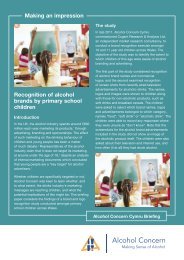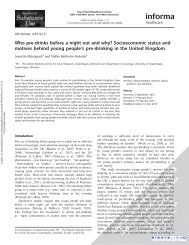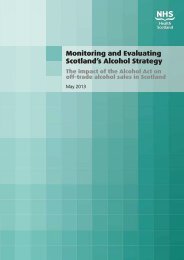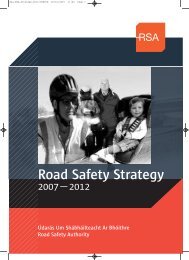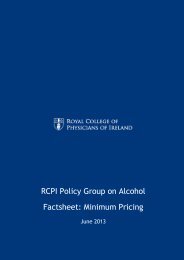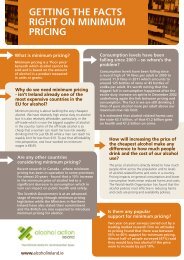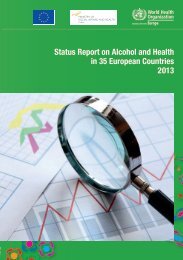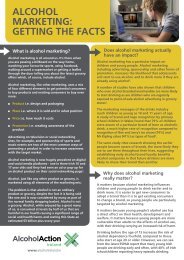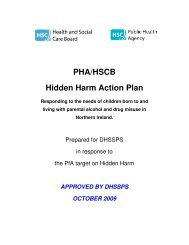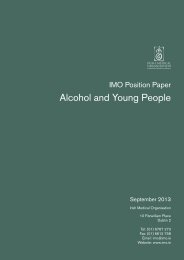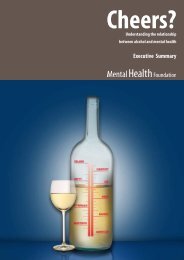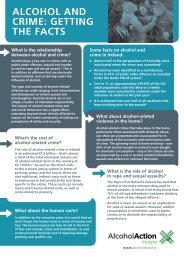Addressing the harmful use of alcohol - WHO Western Pacific Region
Addressing the harmful use of alcohol - WHO Western Pacific Region
Addressing the harmful use of alcohol - WHO Western Pacific Region
Create successful ePaper yourself
Turn your PDF publications into a flip-book with our unique Google optimized e-Paper software.
5.<br />
Regulating hours and<br />
days <strong>of</strong> trading<br />
Rationale<br />
Consistent evidence links increases in hours or days <strong>of</strong> <strong>alcohol</strong> sales to increases in harm,<br />
including traffic injury, street disorder and violence. Even small or local changes have<br />
significant local harm impacts, but little effect on total sales. This indicates that later or longer<br />
trading contributes disproportionately to heavy drinking and drunken behaviour (Babor et al.<br />
2010).<br />
Research in <strong>Western</strong> Australia linked higher levels <strong>of</strong> patron intoxication and high levels <strong>of</strong><br />
local violence to later pub trading hours. In Australia, it has been found that heavier drinkers<br />
are more likely to take advantage <strong>of</strong> longer trading hours than are lighter or more moderate<br />
drinkers (Chikritzhs and Stockwell 2002). A study showed that <strong>the</strong> United Kingdom’s recent<br />
law change allowing sales up to 24 hours a day trebled night-time <strong>alcohol</strong>-related emergency<br />
admissions to one London inner city hospital (Newton et al. 2007).<br />
Restrictions on <strong>the</strong> days and hours <strong>of</strong> trading set ei<strong>the</strong>r standard hours <strong>of</strong> trading for all<br />
premises or different types <strong>of</strong> premises, or set hours as a condition <strong>of</strong> each individual licence.<br />
Under ei<strong>the</strong>r option, some restrictions against selling <strong>alcohol</strong> on particular religious days or<br />
public holidays are set by legislation.<br />
Issues to consider<br />
There has been a trend towards allowing later hours <strong>of</strong> trading for licensed premises. Late<br />
closing times have been opposed by communities and by health organisations, such as <strong>the</strong><br />
United Kingdom’s Academy <strong>of</strong> Medical Sciences (Academy <strong>of</strong> Medical Sciences 2004). Public<br />
objections to licences or renewals for late opening premises relate to noise, intoxication levels,<br />
public disorder, violence and fears about safety. Later closing times shift intoxicated behaviour<br />
and its consequences to later times <strong>of</strong> night, with implications for policing.<br />
64 Return to TOC



